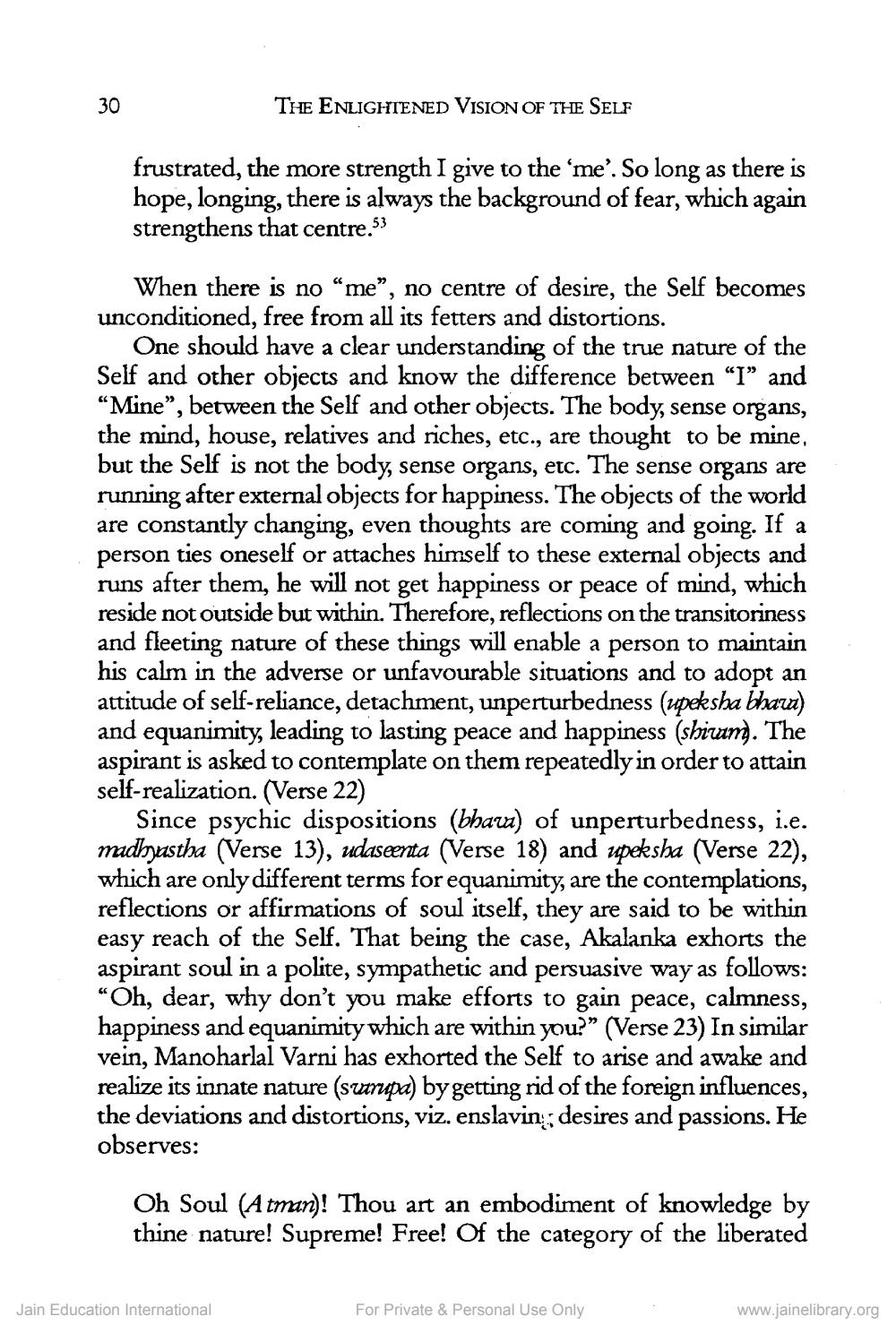________________
THE ENLIGHTENED VISION OF THE SELF
frustrated, the more strength I give to the 'me'. So long as there is hope, longing, there is always the background of fear, which again strengthens that centre."
When there is no “me”, no centre of desire, the Self becomes unconditioned, free from all its fetters and distortions.
One should have a clear understanding of the true nature of the Self and other objects and know the difference between “I” and "Mine", between the Self and other objects. The body, sense organs, the mind, house, relatives and riches, etc., are thought to be mine, but the Self is not the body, sense organs, etc. The sense organs are running after external objects for happiness. The objects of the world are constantly changing, even thoughts are coming and going. If a person ties oneself or attaches himself to these external objects and runs after them, he will not get happiness or peace of mind, which reside not outside but within. Therefore, reflections on the transitoriness and fleeting nature of these things will enable a person to maintain his calm in the adverse or unfavourable situations and to adopt an attitude of self-reliance, detachment, unperturbedness (rpeksha bhara) and equanimity, leading to lasting peace and happiness (shivan. The aspirant is asked to contemplate on them repeatedly in order to attain self-realization. (Verse 22)
Since psychic dispositions (bhava) of unperturbedness, i.e. madhjastha (Verse 13), udaseenta (Verse 18) and upeksha (Verse 22), which are only different terms for equanimity, are the contemplations, reflections or affirmations of soul itself, they are said to be within easy reach of the Self. That being the case, Akalanka exhorts the aspirant soul in a polite, sympathetic and persuasive way as follows: "Oh, dear, why don't you make efforts to gain peace, calmness, happiness and equanimity which are within you?” (Verse 23) In similar vein, Manoharlal Varni has exhorted the Self to arise and awake and realize its innate nature (scarpa) by getting rid of the foreign influences, the deviations and distortions, viz. enslavin desires and passions. He observes:
Oh Soul (Atman)! Thou art an embodiment of knowledge by thine nature! Supreme! Free! Of the category of the liberated
Jain Education International
For Private & Personal Use Only
www.jainelibrary.org




